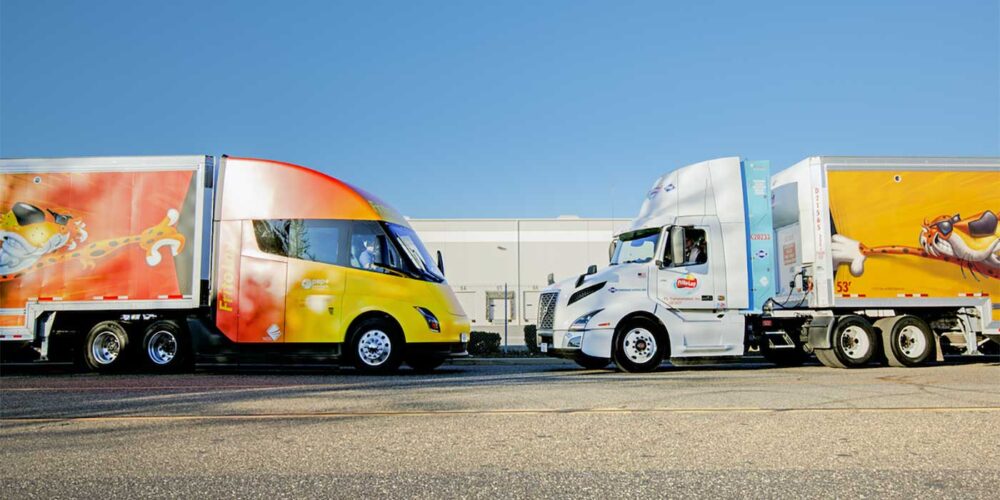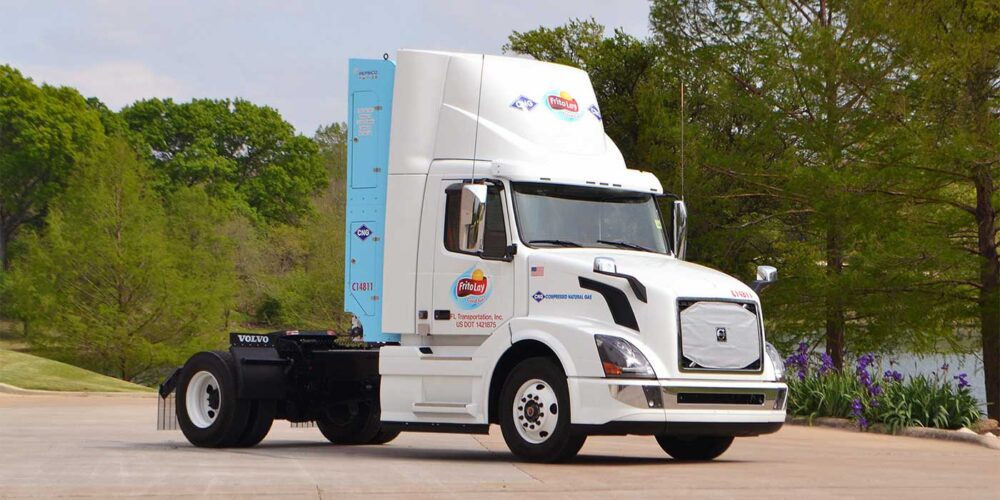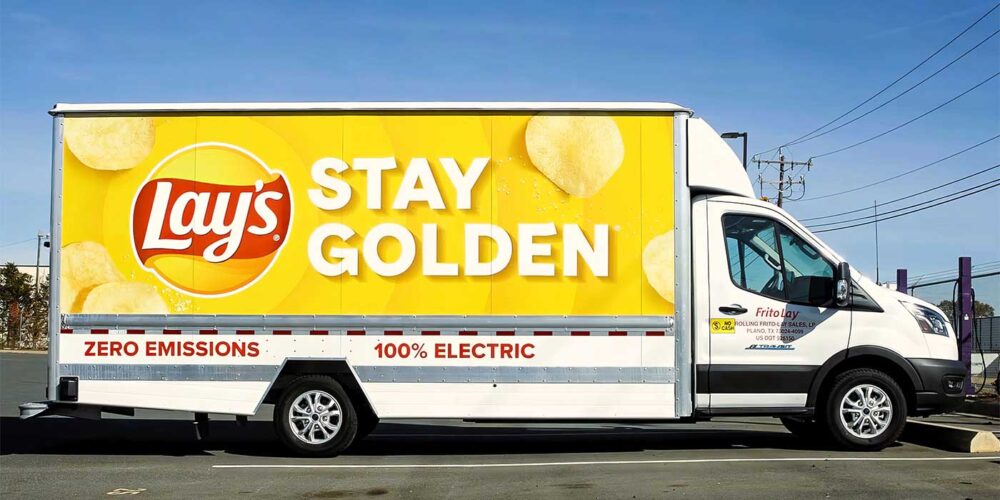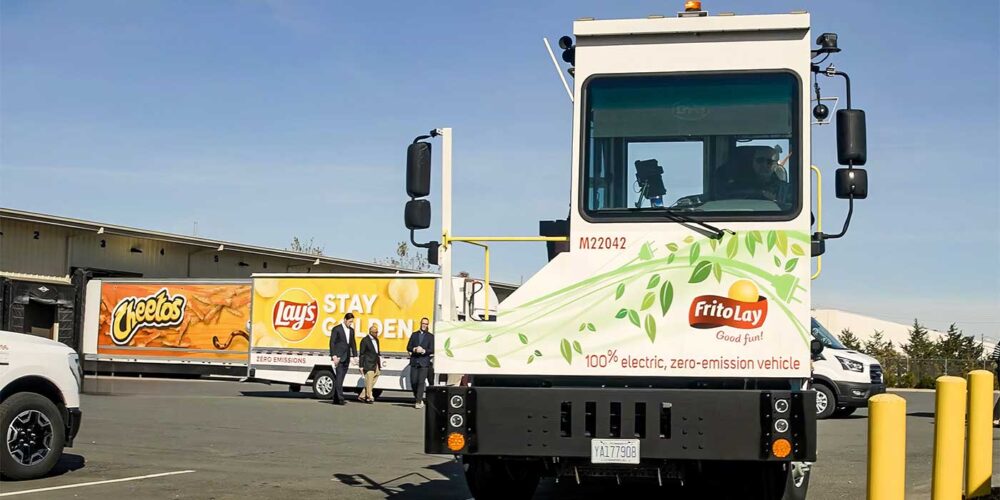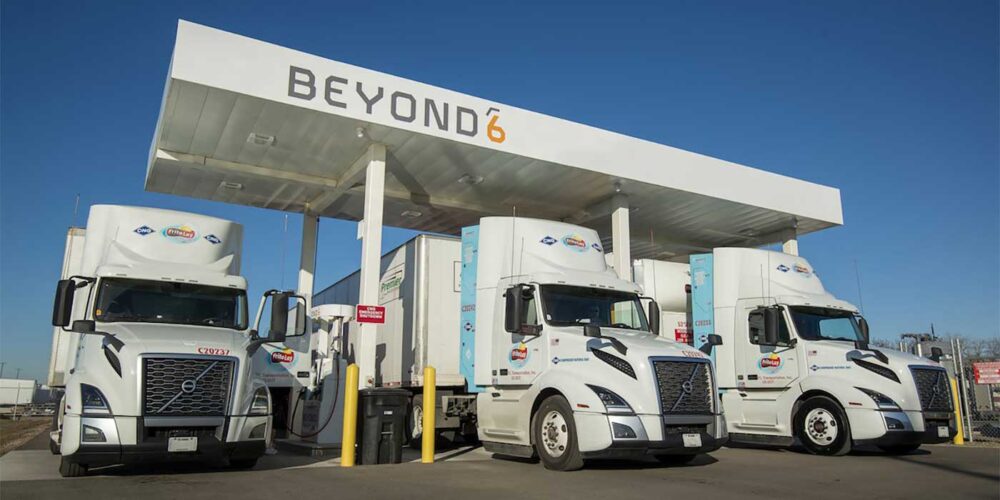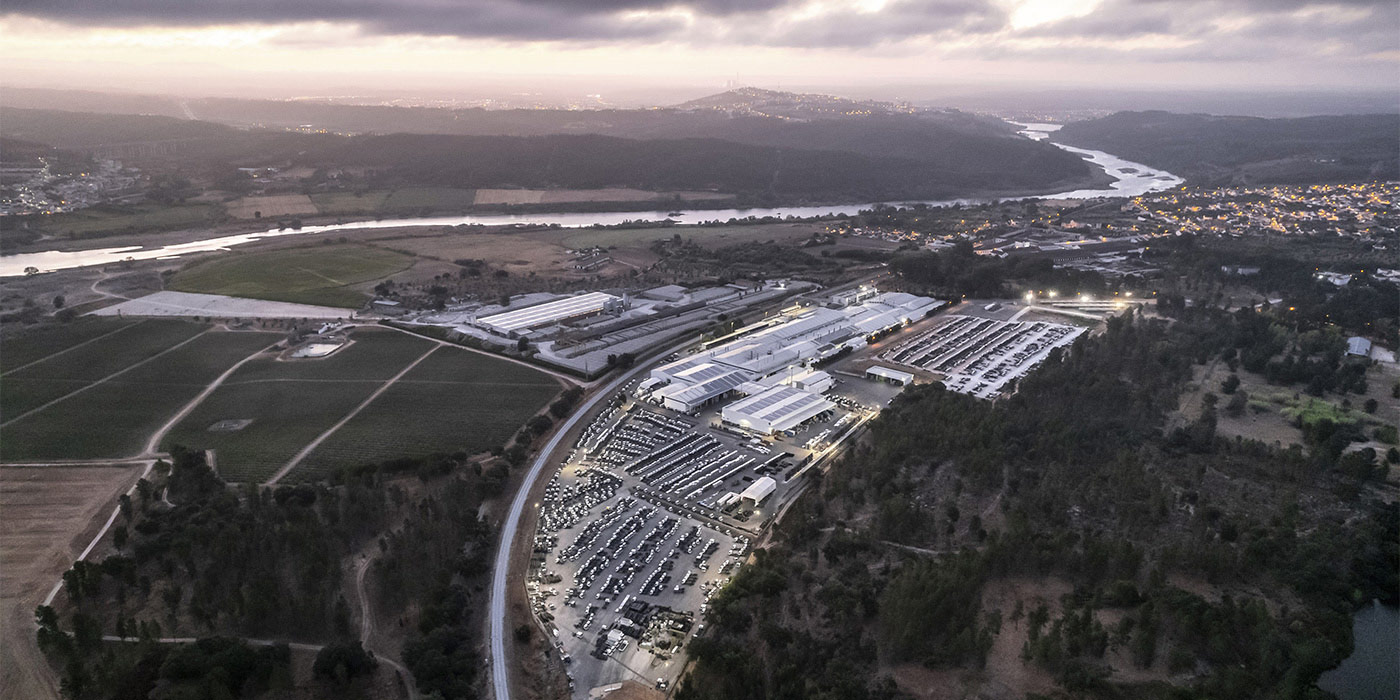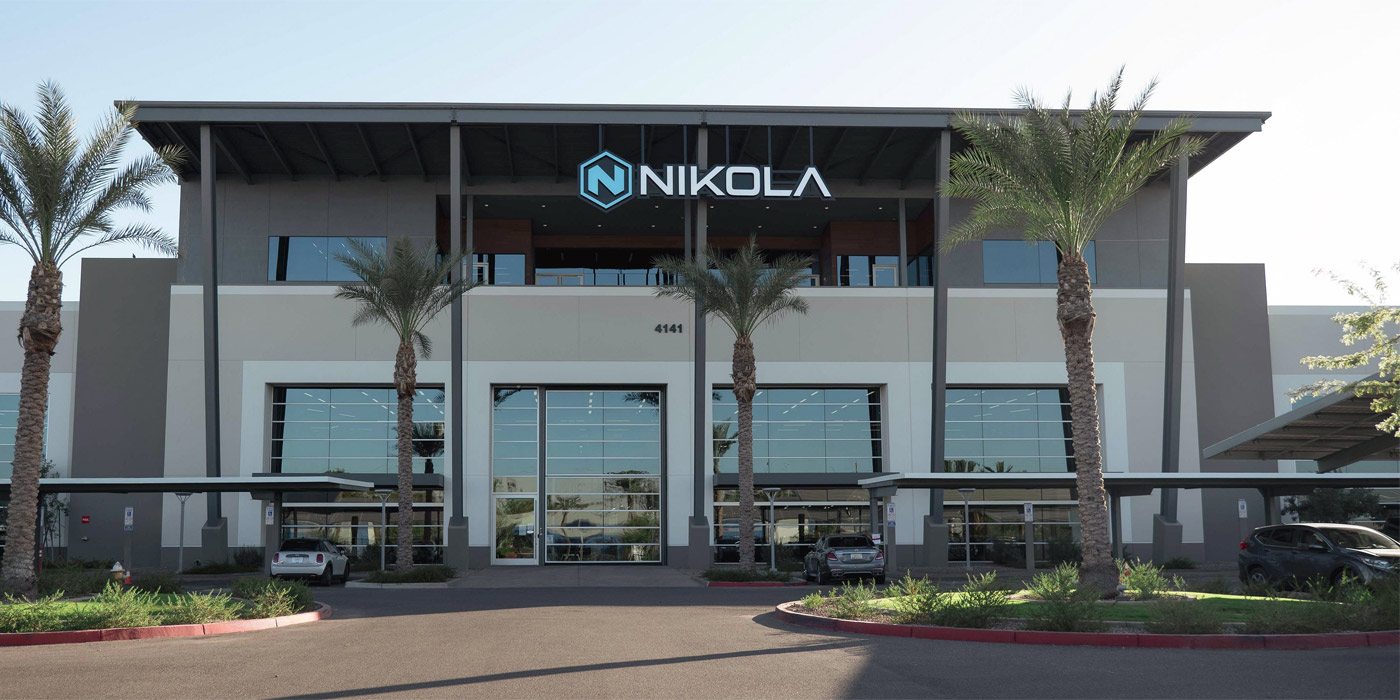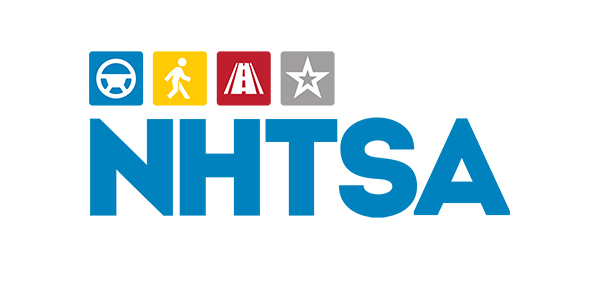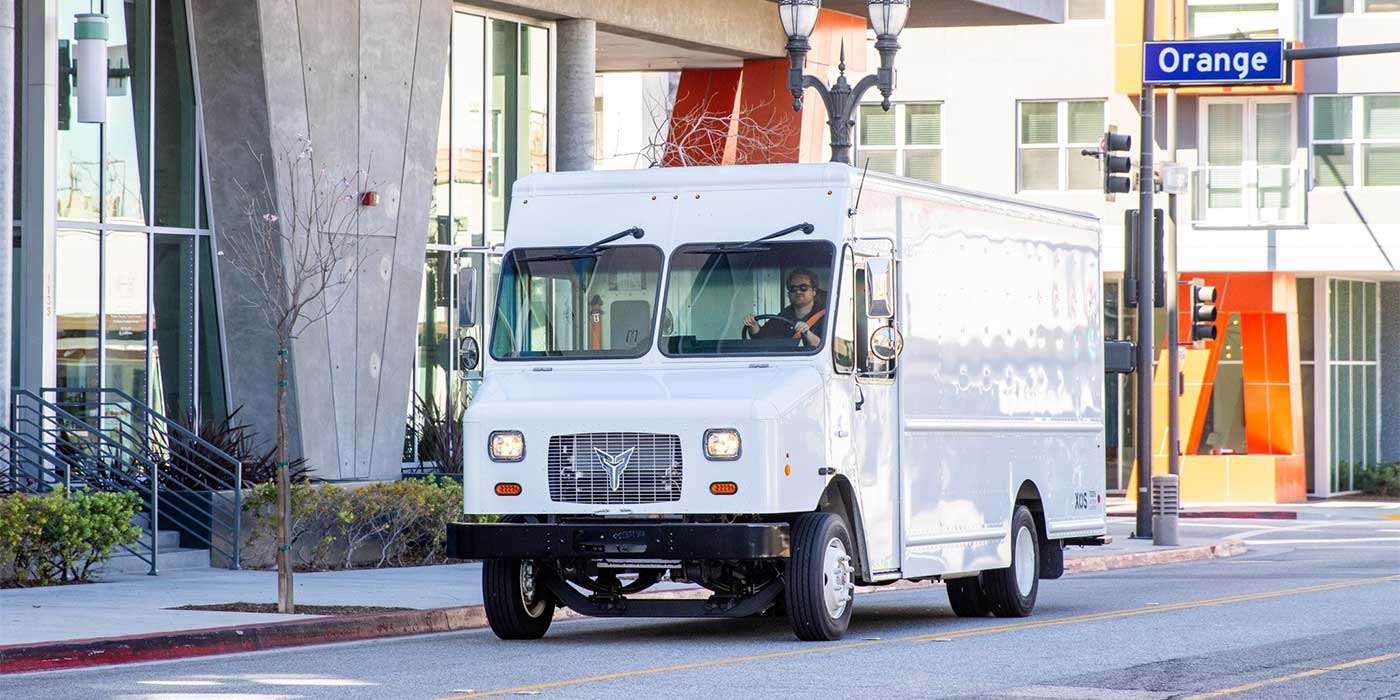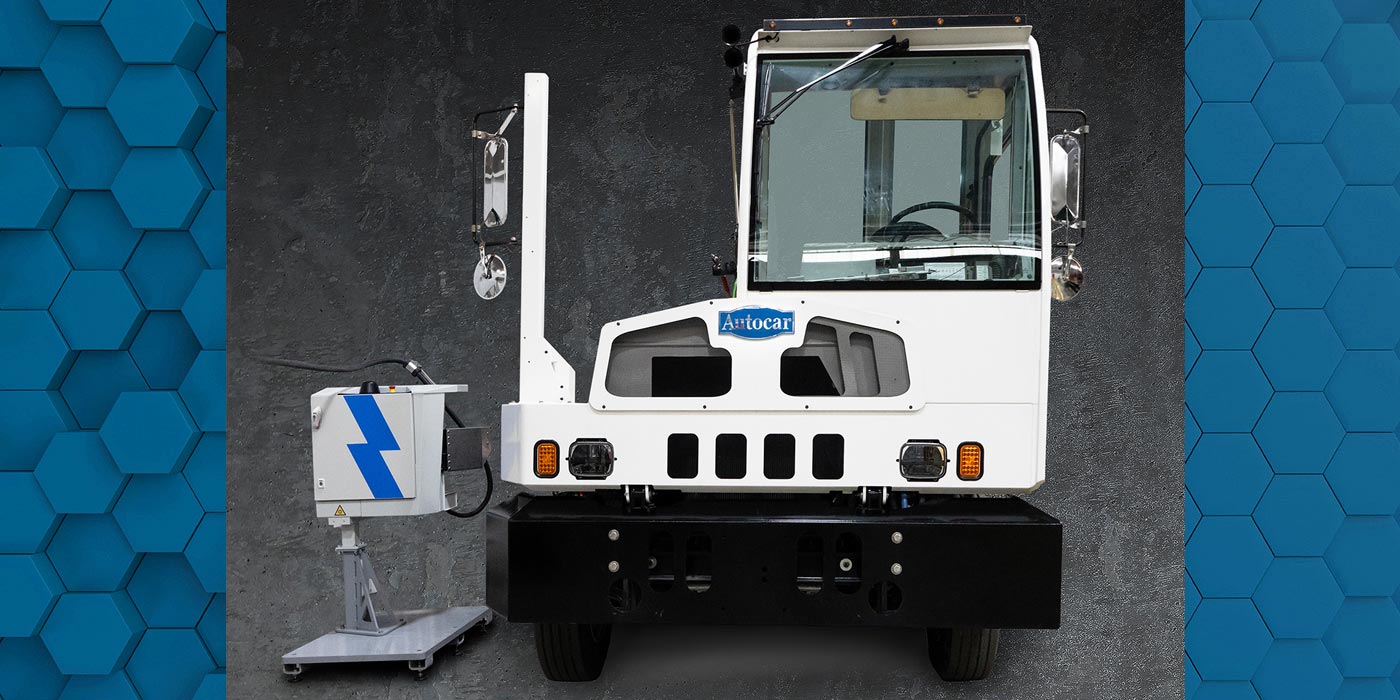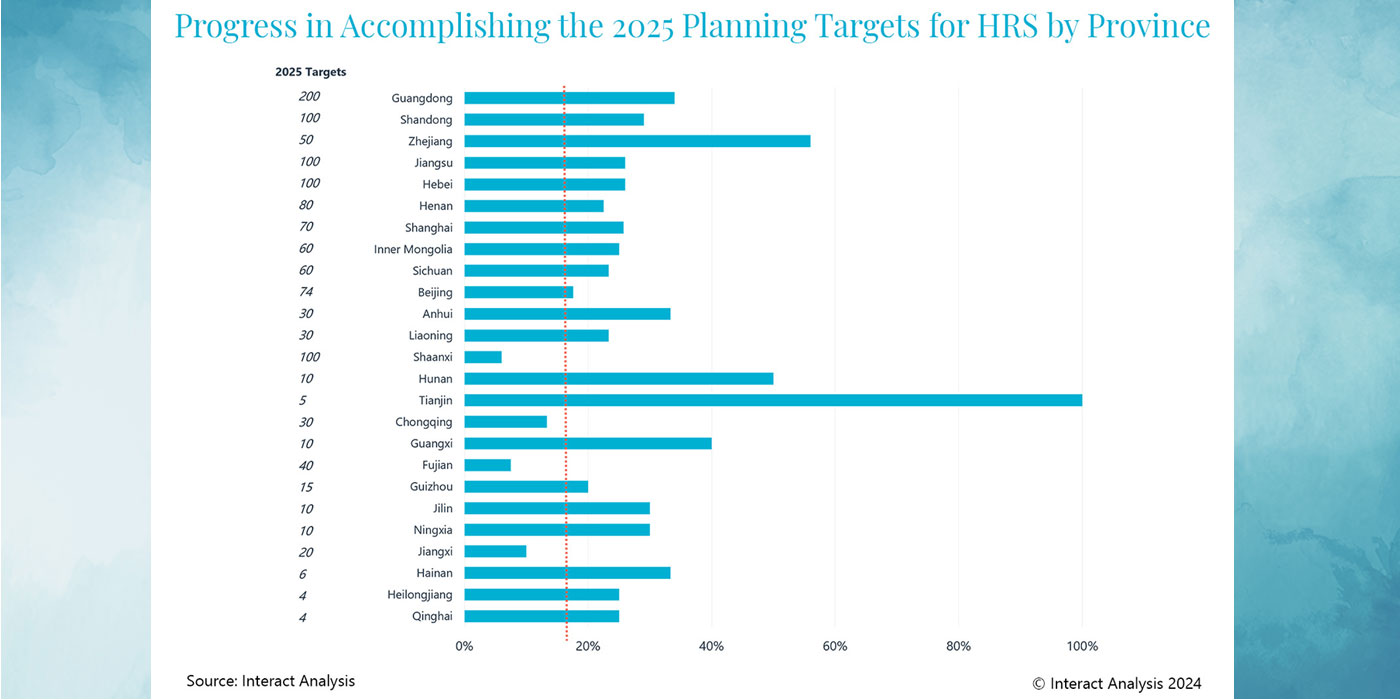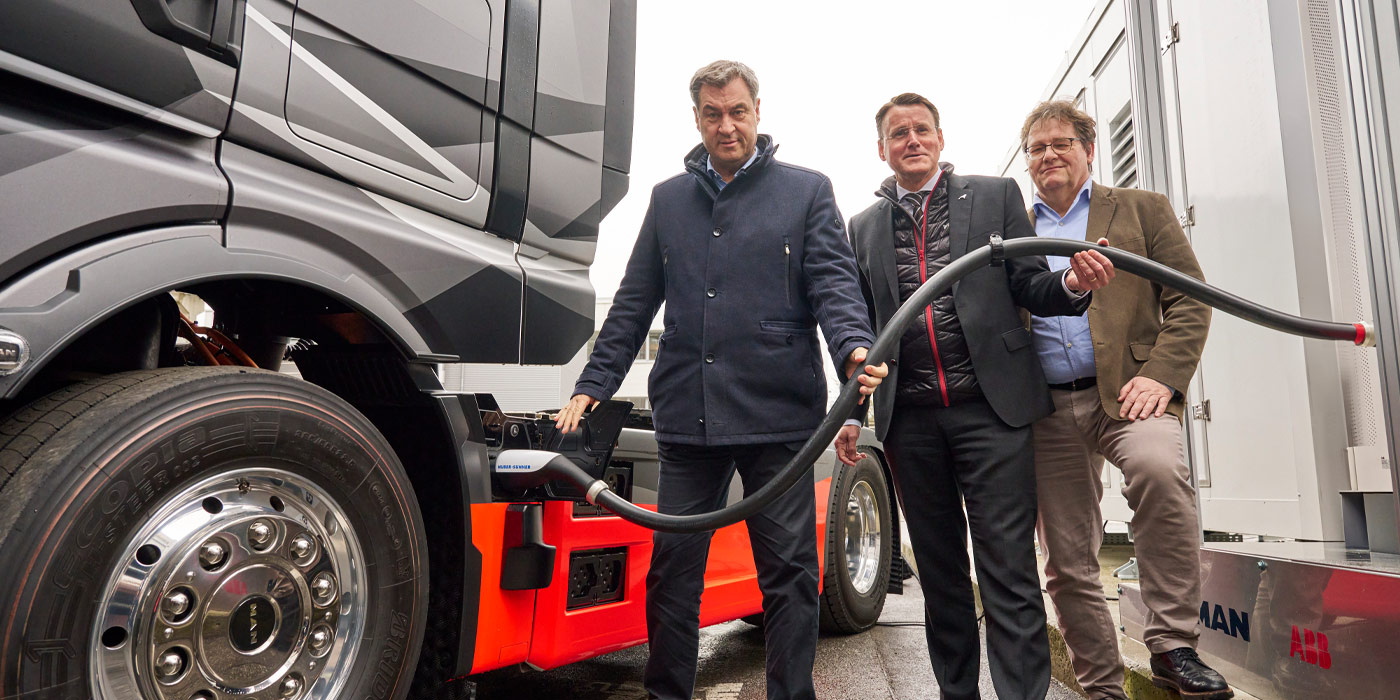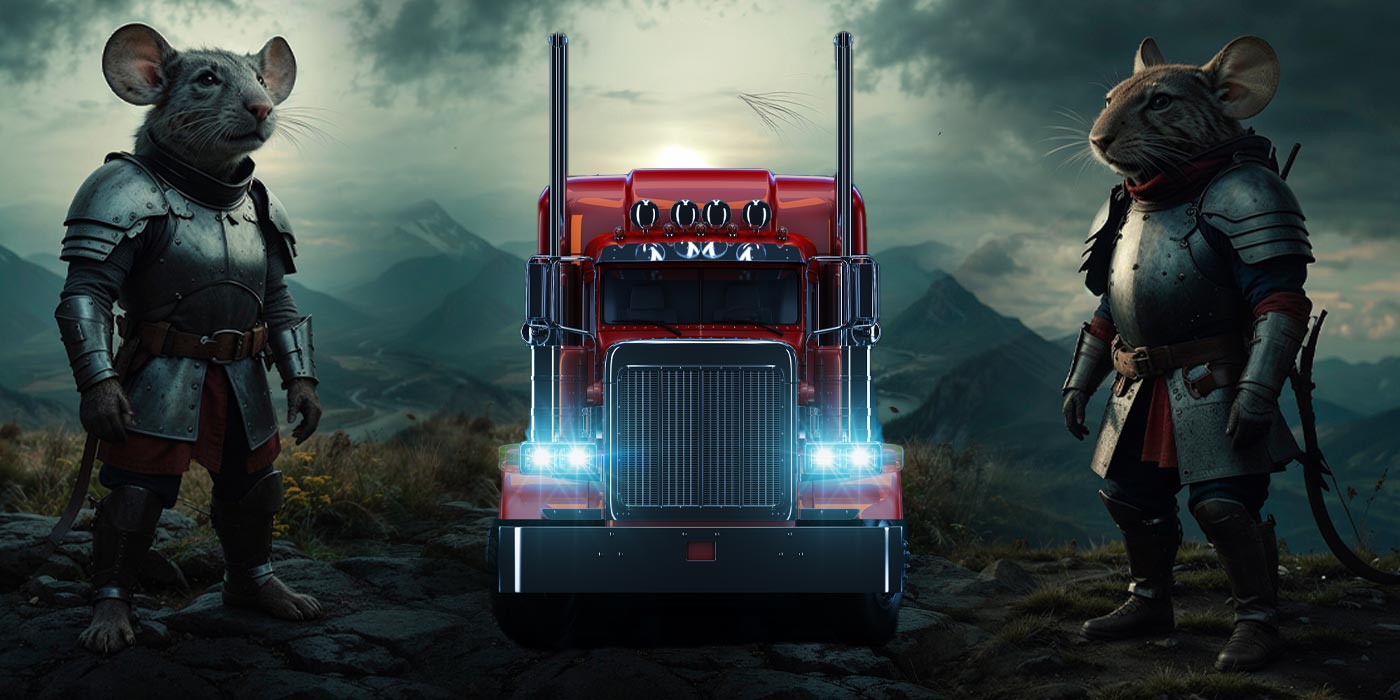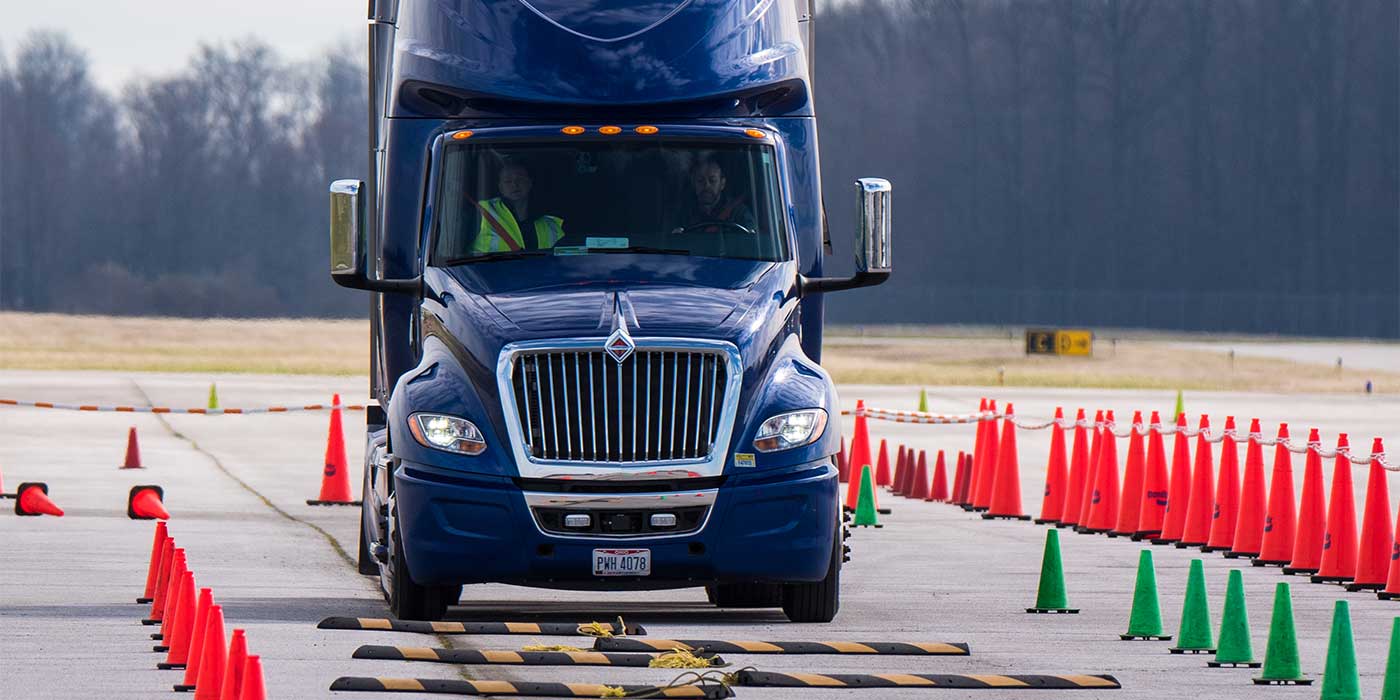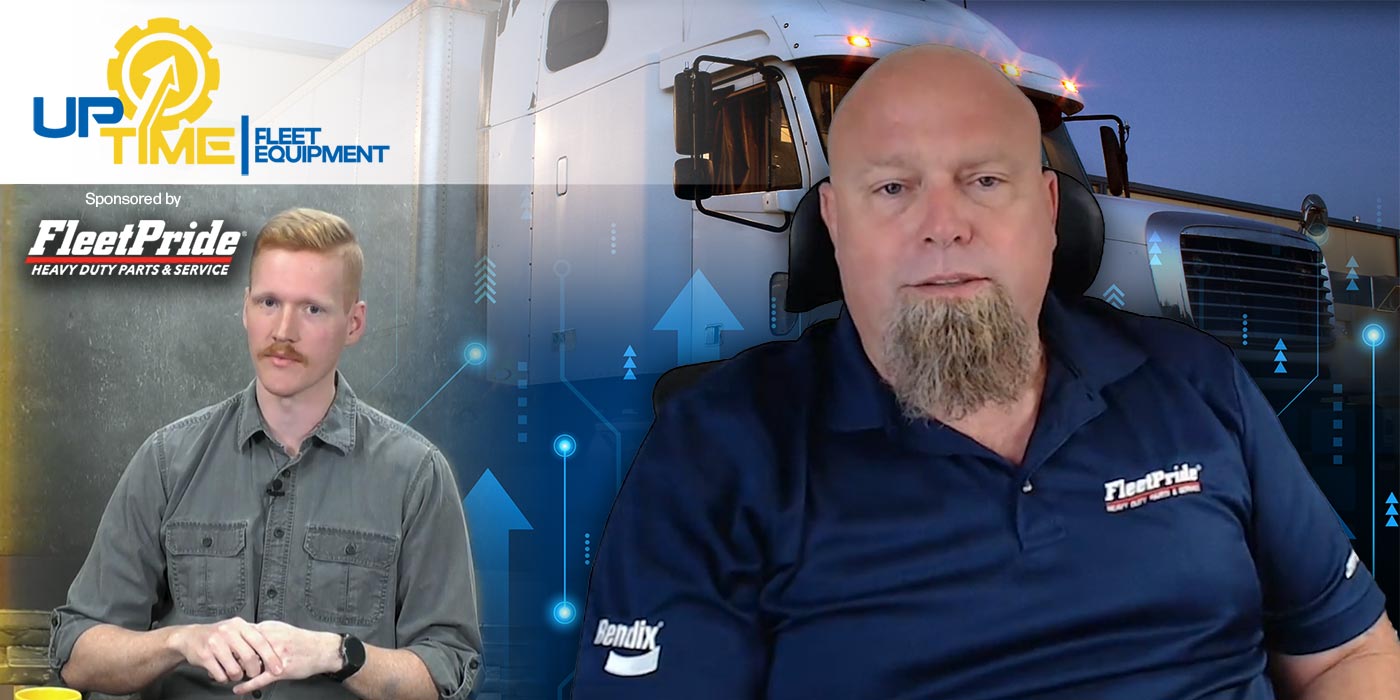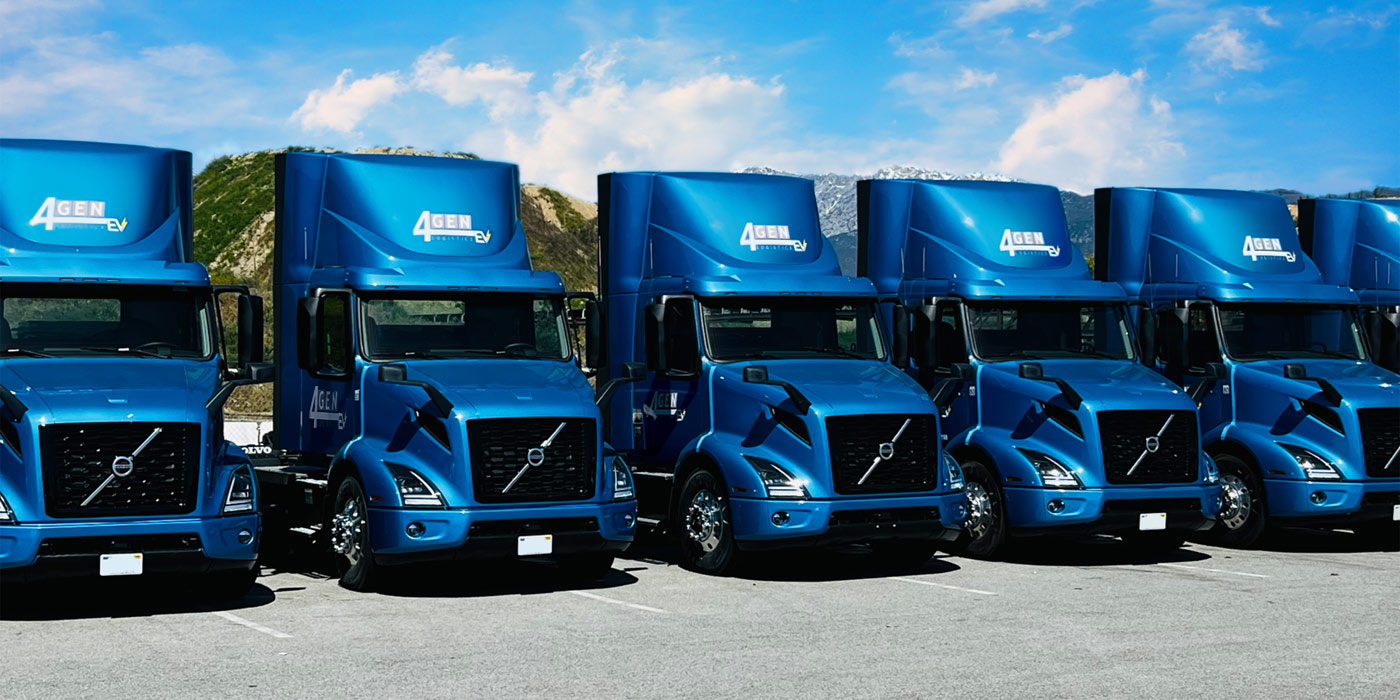To say that the potential for reducing fleet carbon emissions within PepsiCo’s Frito-Lay and Pepsi Beverage operations is considerable would be an understatement. In North America alone, the company owns more than 80,000 Class 1-8 assets, including on- and off-highway vehicles, trailers and material handling equipment.
“There are a number of ways we’re working to decarbonize our fleet operations,” said Adam Buttgenbach, director of fleet engineering and sustainability at PepsiCo. “Among them are optimizing delivery networks for maximum payload and reduced empty mileage. We have also been implementing scaled deployments of electric and other alternative fuel-powered vehicles.”
Sustainability for one of the largest private fleets in North America is part of the PepsiCo Positive initiative that aims to achieve net-zero emissions globally across the company’s entire business by 2040. PepsiCo also has a goal of 75% reduced emissions by 2030 across its direct operations.
“For any potential alternative fuel, we look at the capability of the vehicle first,” Buttgenbach said. “Our regional over-the-road and our last mile operations, from distribution centers to customers, have distinct operating ranges and duty cycles. Vehicles must first match the needs of the application and have a favorable Total Cost of Ownership (TCO) comparison.”
“We also measure the upstream effects of a fuel’s sustainability value,” Buttgenbach continued. “Beyond tailpipe emissions, we evaluate the carbon intensity of every energy source we’re planning to use. From zero emissions alternatives like battery electric vehicles to renewable diesel and biodiesel, to propane and compressed natural gas (CNG), environmentally responsible sourcing is as important as emissions reduction.”
The right charging or fueling infrastructure enables sustainability, Buttgenbach was quick to point out as well. “As we invest in and grow our alternative fuel powered fleet, looking beyond the fence has been an essential factor in our success.”
As an example, Buttgenbach pointed to PepsiCo’s experience with CNG over the past decade. Once the decision was made to expand the use of CNG vehicles, the company worked with fuel providers to build a fueling site that includes retail access. The result, he noted, is lower infrastructure costs and the ability to bring in other fleets who are interested in decarbonizing.
Partnerships are also important for meeting electric vehicle charging needs. “We started on our electric commercial vehicle journey over a decade ago and we’ve learned that there are several variables to consider,” Buttgenbach explained. “The best approach is to map out what an EV charging solution needs to look like in terms of vehicle duty cycles and fleet size. Lead time must be considered as well and you have to engage utilities, and local agencies for permits. Being flexible and planning is what pays off.”
One recent example is a Prologis-owned electric vehicle infrastructure at Frito-Lay’s distribution center in Queens, New York, where most of the vehicles are operated in a compact urban area and, as a result, typically have lower mileage. This allows for charger ratios less than the one-to-one required at other sites.
As Frito-Lay nears a full conversion of the site’s more than 60 gasoline route trucks to all-electric Ford E-Transits, Prologis is upgrading and expanding its charging capabilities, eliminating a common barrier of convincing utilities to expand the power grid.
“The work we’re doing in Queens shows why collaboration is so important and how nimble we can be in transforming our depots,” Buttgenbach says. “This allows us to work with the utility one time, put the infrastructure in one time, go through most of the training one time– and really upgrade the fleet for our associates all at once.”
Currently in service at Frito-Lay are electric vehicles up to Class 8 models from a range of OEMs that are operated in regional over-the-road applications and in last mile direct store delivery serving 315,000 retail customers weekly.
Across PepsiCo’s North American fleet, there are more than 700 CNG tractors, with the majority powered by Renewable Natural Gas, in regional over-the-road service running between manufacturing facilities and distribution centers across the U.S. and Canada.
Among those many hubs is Frito-Lay Modesto, one of the company’s largest manufacturing plants and the first-of-its-kind for PepsiCo.
“At Frito-Lay in Modesto, California, we’ve reduced greenhouse gas emissions from direct fleet operations by 91%,” Buttgenbach said. “The facility now employs zero- and near-zero-emissions vehicles in place of diesel fleet assets and has fueling and charging infrastructures.”
Started in 2019, Buttgenbach reported, the Frito-Lay Modesto project includes:
- Three BYD 8Y electric yard tractors, each operating 20 hours per day moving more than 150 trailers while only charging for two hours daily;
- 12 Crown Li-ion forklifts powered by lithium-ion batteries;
- Electric Tesla over-the-road tractors and four Tesla 750kW charging stations to provide up to 400 miles of range in one hour of charging;
- 38 Volvo VNL tractors fueled by CNG with RNG attributes from a nearby, public access fueling station owned and operated by Beyond6; and
- Six Peterbilt 220EV electric box trucks that provide zero emissions last mile delivery.
Additionally, in 2021, the Frito-Lay Modesto site achieved sourcing 100% of its electricity from renewable sources. On-site solar power provides up to 20% of the facility’s energy use daily.
The Frito-Lay Modesto project was supported by the California Climate Investments (CCI) initiative in conjunction with the San Joaquin Valley Air Pollution Control District (SJVAPCD), and the California Air Resources Board (CARB). Other project participants include Café Coop, CALSTART, Project Clean Air, University of California and Riverside CE-CERT. Equipment and technology suppliers for the project include BYD Motors, ChargePoint, Crown, Meritor, Peterbilt, Tesla and Volvo.
Pepsi Beverages North America has also begun using Tesla electric tractors and charging stations at its Sacramento bottling plant, made possible by a grant from the Sacramento Metropolitan Air Quality Management District.
Across the PepsiCo operation, more than 1,000 technicians who support the company’s fleet are being trained to service and repair the growing number of alternative fuel vehicles in operation. “Manufacturers, local dealers and upfitters have been instrumental in training our staff,” Buttgenbach said. “We’ve also upgraded our maintenance shops with ventilation systems, tooling and safety procedures to be able to maintain these new assets.”
Outside of its private fleet, PepsiCo is also focused on the third-party transportation and distribution operations that comprise 18% of its emissions footprint. In 2023, PepsiCo’s first third-party shipment on an electric vehicle was hauled for Frito-Lay by Schneider National with a Freightliner eCascadia tractor. Initial shipments for Frito-Lay using Schneider’s growing electric fleet will be intermodal inbound and outbound drayage moves in southern California.
“There’s no single solution for improving fleet sustainability performance,” Buttgenbach said. “It takes a holistic strategy and a variety of approaches; but through PepsiCo Positive, we will continue to seek new, more efficient technologies to cut our distribution impact and reduce our fleet’s carbon footprint.”

